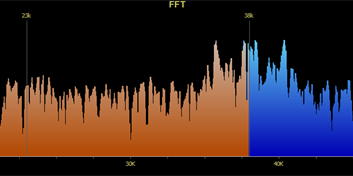The following exchange was prompted by the article “Don’t Be Blind to the Possibilities” by Jim Withers in our April 8 edition. I share it with permission. The e-mail came from Russ Johnson of Cañon City, Colo.
Johnson: As a recent “recipient” of a spinal-cord injury, I found your article quite interesting, Jim.
I’m trying to assess whether I have the “oomph” to return to close to a full-time schedule, possibly returning to radio. I’m on full disability. I had a herniated disc that I knew about but chose to stay away from surgery prior to my accident, fearing its own risk of damage.
I am somewhat ambulatory for short distances with a walker, but choose to shop the big box stores with a wheelchair. Hand dexterity is pretty much shot; for example I was 40+ words per minute pre-injury, now it’s under 15 — still usable, as long as major speed isn’t needed. I have to take lots of Lyrica/Neurontin to avoid “pins and needles” and leg spasms.

iStockphoto/caracterdesign Prior to my injury I was a traffic reporter in Des Moines for a number of years and worked for a while in the business office at the local DM Clear Channel outpost, WHO et al. Back in the 80-90 days, I was instrumental in an effort to add a C2 to the Ottumwa-Oskaloosa area in southern Iowa. In 2000, as part of a “mid-life” crisis, I did a “table-top” drop-in of a class A in a small Midwest town.
I’ve been contemplating options to somehow start working again, since I’m still some 17 years off from official retirement age. As you might imagine, I’m reluctant to work in a traditional employee-employer setting and run the risk of being let go, then suffering some major speed bumps getting back on Medicare and Social Security.
I’ve been talking with a friend about whether I have the stamina to put the station on the air. He owns a couple of small-market FM stations in addition to working in the IT department at a college. (I sure don’t have the stamina to keep up his schedule!) He was doubtful.
So the question I’m pondering is whether my involvement on a part-time basis (officially less than 15 hours per week) would be enough. My actual involvement may end up being more like 25 hours per week, but still, I’d be nervous with this arrangement if I had controlling interest.
Would you think if I moved from a walker to a power scooter, at least while on the job, it would help in the stamina department? If I might ask, was your injury lower down the spine? In a way, I feel fortunate that my injury was “incomplete,” but not so much with the C5-C6 injury spot. All of my appendages work, but none of them very well!
I look forward to your feedback. Also thought that I’d add that while looking through my bookmarks I found your RW article on financing stations. Needless to say, it’s another good resource.
Withers: Russ, thanks for the nice comments. Although I guess every disability is different, there do seem to be quite a few similarities.
I have Muscular Dystrophy, a very slowly progressive disease, affecting my arms and legs, so over the past 10 years — I was diagnosed 31 years ago — I have had plenty of time to adjust to the change in my abilities. Like you, I went from very high-speed typing and Morse code transcription (I’m a “ham”) to hunt and peck!
I’m not sure how to advise on your “oomph,” as you call it. As for myself, I find that the belief that I can do “it” is at least 80 percent of the actual doing, so I’m pretty sure (based on your e-mail) that you could accomplish what you need to in order to get the job done.
The more serious concern, in my mind, is making the enterprise pay off! You reference my series of articles on financing a deal. Finding a station that you can afford, that will generate real cash flow quickly, and getting it with a reasonable debt load is the whole deal. It would be a disaster if you found that you could work around your disability, only to find out that the bank could care less about those things … they just want their money paid back on time.
My only other advice is to be careful. I meant what I said in the article about my wife; she literally panics when she thinks I might be trying a bit too hard to poke around in the 8000 Volt power supply. And a disabled guy will turn into a burnt french fry just as quickly as an able-bodied guy, so stay well away from the HV stuff.
With regard to Social Security disability, it is my understanding that you are allowed to make up to a certain amount of income every month before they cut your disability payments. Look into the resources and FAQs at ssa.gov.
Finally, I applaud your guts. Your “normal” (and mine) requires a fair amount of positive thinking. I’m always impressed when I meet other folks who can pull that off.
Johnson: Jim, thanks for getting back to me. I’d have to say there’s no “easy” way to acquire a disability. At least with a slow onset like MD one can plan ahead more; but I’m guessing that’s a double-edged sword as well.
I like your statement that the belief that I can do “it” is at least 80 percent of the actual doing. I try to follow with that, although I also scare my wife with some of the things I attempt.
No HV, or RF for that matter. My training and upbringing were business-oriented. I remember my dad sweating bullets to keep things going in January and February, the slow time of year in the ag-supply biz.
I’d like to stay as active as I can and begin working, even if only part-time, to give my 11-year-old daughter a sense that money doesn’t just come automatically at the beginning of the month. Don’t get me wrong, though, Social Security disability has been a blessing.
For now, I’m content to let the ownership issue “simmer on the back burner.” I’ve been a Midwesterner most of my life, but the Albuquerque-like climate of Cañon City is hard to beat for me. Snow and ice generally disappear here in a couple of days. Cañon City has the warmest winters in Colorado.
Assuming funds were in place to put a station on the air, I feel it may still be hard to run it from a distance, even with the Internet. In theory the tools are there to run a business from just about anywhere, but I’m not sure that’s possible for radio. What’s your opinion on this?
Withers: Well, Russ, running a station from a distance is a challenge, but it can be done (although it is absolutely necessary to be able to travel to the station a few times a year. I slug it out on a two-hop flight three or four times a year to visit my station in Corpus Christi.) A couple of things make this doable:
First, you need a top-notch computer guy at the station and a good Internet connection, with streaming capability. I listen to my station every day (during local programming only, though, since a streaming license from the music license guys is ridiculously expensive). You can also have spots and air checks sent to you periodically via e-mail or other downloads, so you can hear what things sound like.
Second, I keep some of the ops here with me, most notably traffic and billing. Having the traffic system here allows me to audit who is on the air and when, how many discrepanices we have, how the programming is integrated, etc. And billing, of course, is the lifeblood of the station, so you need to keep track of that every day.
At the end of the day, Russ, radio stations are pretty simple things from a strictly technical standpoint. The station will percolate right along without much day-to-day tweaking. It is the business side of things — which you seem pretty comfortable with — that requires the attention.
If you have done the due diligence and can come up with the money and service the debt, I say “full speed ahead”!
The author is Editor in Chief of Radio World U.S.
Comment on this or any article to[email protected].









